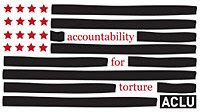THE isles of Greece! the isles of Greece!Link
Where burning Sappho loved and sung,
Where grew the arts of war and peace, --
Where Delos rose and Phoebus sprung!
Eternal summer gilds them yet,
But all, except their sun, is set.
The Scian and the Teian muse,
The hero's harp, the lover's lute,
Have found the fame your shores refuse;
Their place of birth alone is mute
To sounds which echo further west
Than your sires' "Islands of the Blest."
The mountains look on Marathon --
And Marathon looks on the sea;
And musing there an hour alone,
I dream'd that Greece might yet be free
For, standing on the Persians' grave,
I could not deem myself a slave.
A king sat on the rocky brow
Which looks on sea-born Salamis;
And ships, by thousands, lay below,
And men in nations; -- all were his!
He counted them at break of day --
And when the sun set, where were they?
And where are they? and where art thou,
My country? On thy voiceless shore
The heroic lay is tuneless now --
The heroic bosom beats no more!
And must thy lyre, so long divine,
Degenerate into hands like mine?
'Tis something, in the dearth of fame,
Though link'd among a fetter'd race,
To feel at least a patriot's shame,
Even as I sing, suffuse my face;
For what is left the poet here?
For Greeks a blush -- for Greece a tear.
Must we but weep o'er days more blest?
Must we but blush? -- Our fathers bled.
Earth! render back from out thy breast
A remnant of our Spartan dead!
Of the three hundred grant but three,
To make a new Thermopylae.
What, silent still, and silent all?
Ah! no; the voices of the dead
Sound like a distant torrent's fall,
And answer, "Let one living head,
But one arise, -- we come, we come!"
'Tis but the living who are dumb.
In vain -- in vain: strike other chords;
Fill high the cup of Samian wine!
Leave battles to the Turkish hordes,
And shed the blood of Scio's vine!
Hark! rising to the ignoble call --
How answers each bold bacchanal!
You have the Pyrrhic dance as yet,
Where is the Pyrrhic phalanx gone?
Of two such lessons, why forget
The nobler and the manlier one?
You have the letters Cadmus gave --
Think ye he meant them for a slave?
Fill high the bowl with Samian wine!
We will not think of themes like these!
It made Anacreon's song divine;
He served -- but served Polycrates --
A tyrant; but our masters then
Were still, at least, our countrymen.
The tyrant of the Chersonese
Was freedom's best and bravest friend;
That tyrant was Miltiades!
Oh! that the present hour would lend
Another despot of the kind!
Such chains as his were sure to bind.
Fill high the bowl with Samian wine!
On Suli's rock, and Parga's shore,
Exists the remnant of a line
Such as the Doric mothers bore;
And there, perhaps, some seed is sown,
The Heracleidan blood might own.
Trust not for freedom to the Franks --
They have a king who buys and sells:
In native swords and native ranks,
The only hope of courage dwells:
But Turkish force and Latin fraud
Would break your shield, however broad.
Fill high the bowl with Samian wine!
Our virgins dance beneath the shade --
I see their glorious black eyes shine;
But, gazing on each glowing maid,
My own the burning tear-drop laves,
To think such breasts must suckle slaves.
Place me on Sunium's marble steep --
Where nothing, save the waves and I,
May hear our mutual murmurs sweep:
There, swan-like, let me sing and die;
A land of slaves shall ne'er be mine --
Dash down yon cup of Samian wine!
Friday, March 9, 2012
"I dream'd that Greece might yet be free": Lord Byron on "The Isles of Greece"
Search for Info/News on Torture
This site can contain copyrighted material, the use of which has not always been specifically authorized by the copyright owner. I am making such material available in my effort to advance understanding of political, human rights, economic, democracy, scientific, and social justice issues, etc. I believe this constitutes a 'fair use' of any such copyrighted material as provided for in section 107 of the US Copyright Law. In accordance with Title 17 U.S.C. Section 107, the material on this site is distributed without profit to those who have expressed a prior interest in receiving the included information for research and educational purposes. For more information go to: http://www.law.cornell.edu/uscode/17/107.shtml. If you wish to use copyrighted material from this site for purposes of your own that go beyond 'fair use', you must obtain permission from the copyright owner.









No comments:
Post a Comment